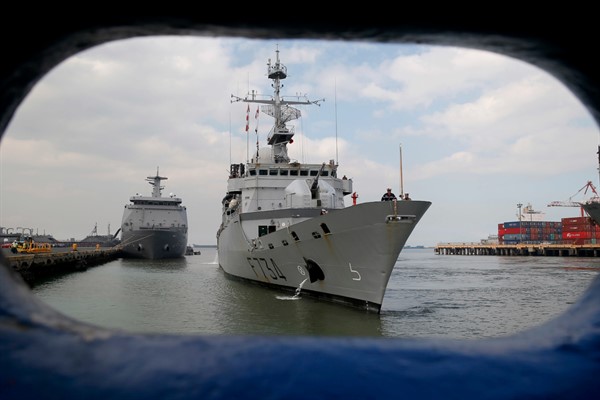In early February, France revealed that one of its nuclear-powered attack submarines had completed a mission in the South China Sea. The rare announcement, two years after the passage of the frigate Vendemiaire through the Taiwan Strait, was a clear signal of a growing French, but also European, interest in the sensitive region.
European awareness of its strategic interests in the Indo-Pacific is a slow train coming. Even for France and the U.K.—which, as permanent members of the United Nations Security Council and nuclear powers with a tradition of power projection, have long been interested in East Asia—there has been a quantum leap in recent years in their appetite for involvement in the region.
France has spearheaded the recent upsurge in interest, driven by its numerous overseas territories in the Pacific that are home to almost 2 million French citizens and comprise 80 percent of its maritime exclusive economic zones. Paris has signed significant weapons contracts with India and Australia, and is party to bilateral, trilateral as well as multilateral security partnerships in the Indo-Pacific. In 2008, the Defense and Security White Paper for the first time acknowledged the importance of the region for Europe in general, and France in particular. Since then, the French Defense Ministry has regularly published an Asia-Pacific strategy document, which became an Indo-Pacific security strategy in 2019.

